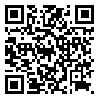1. Lambert EG, Liu J, Jiang S, Zhang J, Kelley TM. The antecedents of job involvement: an exploratory study among Chinese prison staff. Int J Law Crime Justice. 2018;54:21–33. [
DOI]
2. Sørensen KM, Johnsen B. Prison officers’ coping strategies in a high-profile critical situation: Imprisonment after the 2011 terrorist attacks in Norway. Incarceration. 2021;2(1):263266632110047. [
DOI]
3. Sygit-Kowalkowska E, Piotrowski A, Hamzah I. Insomnia among prison officers and its relationship with occupational burnout: the role of coping with stress in Polish and Indonesian samples. Int J Environ Res Public Health. 2021;18(8):4282. [
DOI]
4. Park IJ, Kim PB, Hai S, Dong L. Relax from job, don’t feel stress! The detrimental effects of job stress and buffering effects of coworker trust on burnout and turnover intention. Journal of Hospitality and Tourism Management. 2020;45:559–68. [
DOI]
5. Wang C, Dai J, Li J. Mediating effects of hair cortisol on the mutual association of job burnout and insomnia: a retrospective exploratory study. J Psychiatr Res. 2019;117:62–7. [
DOI]
6. Lei W, Li J, Li Y, Castaño G, Yang M, Zou B. The boundary conditions under which teaching–research conflict leads to university teachers’ job burnout. Studies in Higher Education. 2021;46(2):406–22. [
DOI]
7. Santas G, Isik O, Demir A. The effect of loneliness at work; work stress on work alienation and work alienation on employees’ performance in Turkish health care institution. South Asian Journal of Management Sciences. 2016;10(2):30–8. [
DOI]
8. Jagacinski CM, Kumar S, Keith MG. Expanding the nomological network of work avoidance: antecedents and consequences across contexts. The Journal of Experimental Education. 2020;88(2):221–44. [
DOI]
9. Dağli A, Averbek E. Investigating Organizational alienation behavior in terms of some variables. Universal Journal of Educational Research. 2017;5(2):228–37. [
DOI]
10. Giddens A. The third way and its critics. First edition. Cambridge: Polity Press; 2000.
11. Wegerif R, Doney J, Richards A, Mansour N, Larkin S, Jamison I. Exploring the ontological dimension of dialogic education through an evaluation of the impact of Internet mediated dialogue across cultural difference. Learn Cult Soc Interact. 2019;20:80–9. [
DOI]
12. Karpov A. Ontological basis of the education phenomenon as a performer of its social and existential realities. Postmodern Openings. 2019;10(1):220–35. [
DOI]
13. Tony Carusi F, Szkudlarek T. Education is society … and there is no society: the ontological turn of education. Policy Futures in Education. 2020;18(7):907–21. [
DOI]
14. Holanda MNAB. Ideology and alienation: a necessary relationship. Rev Katálysis. 2019;22(2):235–51. [
DOI]
15. Wogu IAP, Olu-Owolabi FE, Assibong PA, Agoha BC, Sholarin M, Elegbeleye A, et al. Artificial intelligence, alienation and ontological problems of other minds: A critical investigation into the future of man and machines. In: International Conference on Computing Networking and Informatics (ICCNI) [Internet]. Lagos: IEEE; 2017. [
DOI]
16. McKinnon J. In their shoes: an ontological perspective on empathy in nursing practice. J Clin Nurs. 2018;27(21–22):3882–93. [
DOI]
17. Karandish M, Mahdad A, Golparvar M. The effectiveness of ontology training based on Giddens theory on role ambiguity and role conflict. J Ind Organ Psychol Stud. 2020;7(2):399–416. [Persian] [
Article]
18. Yarian S, Dinparvar Z. The effectiveness of ontological security training on religious identity, psychological safety, and job security in teachers. Journal of The Ministry of Health and Medical Education. 2020;4(1):58–65. [Persian] [
Article]
19. Esmaili M. Study the effectiveness of life review therapy with emphasis on Islamic ontology on decreasing the symptoms PTSD. Culture Counseling. 2010;1(2):1–20. [Persian] [
Article]
20. Pazan F, Esfahani Asl M. Hardiness training on life satisfaction, job burnout and quality of life among the female employees of Ganjavian Hospital of Dezful. Middle Eastern Journal of Disability Studies. 2019;9:100. [Persian] [
Article]
21. Maslach C, Jackson SE. The measurement of experienced burnout. J Organiz Behav. 1981;2(2):99–113. [
DOI]
22. Boeree L. Alienation in the organization. Journal of Occupational Psychology. 2001;49:193-202.
23. Sina H, Karimzadeh S, Nazem F, Ahmadi E. Presenting a structural model for predicting dimensions of job burnout on the base of quality of working life, organizational commitment and knowledge management among female managers of Islamic Azad University, region 1. Quarterly Journal of Woman & Society. 2014;5(19):1–18. [Persian] [
Article]
24. Akram MW, Ismail K, Gilaninia S. Alienated organizations versus wise organizations: a new panorama organizations. Arabian Journal of Business and Management Review. 2016;6(5):20–33. [
DOI]
25. Sharafi L, Mehdad A, Fazel A. The relationship of job characteristics and organizational justice dimensions with job alienation. Knowledge & Research in Applied Psychology. 2013;14(3):51–9. [Persian] [
Article]
26. Rezapour Mirsaleh Y, Esma’ili M, Farahbakhsh K, Zoka’i MS. Dimensions of religious ontology in inner speech of religious couples with high marital adjustment. Clinical Psychology Studies. 2013;3(10):19–53. [Persian] [
Article]

 ، علی مهداد*2
، علی مهداد*2 
 ، محسن گلپرور3
، محسن گلپرور3 




